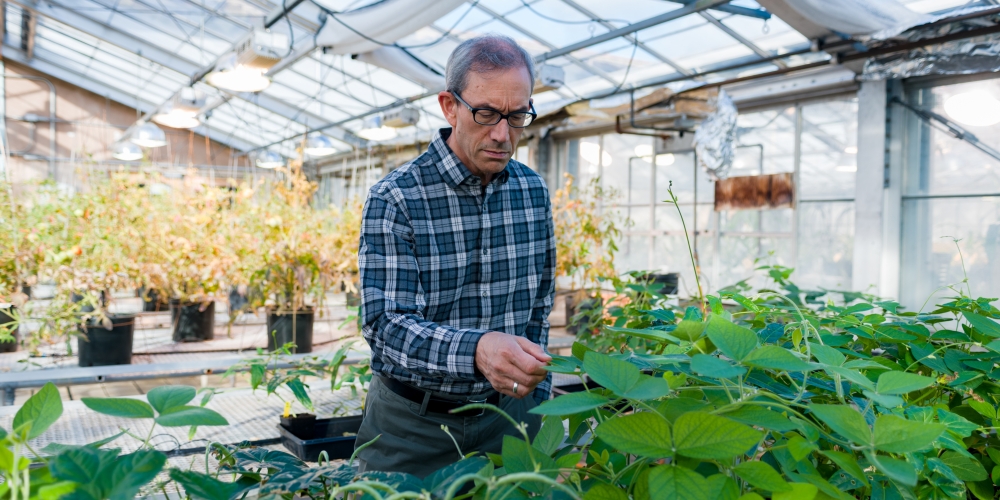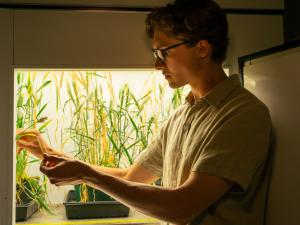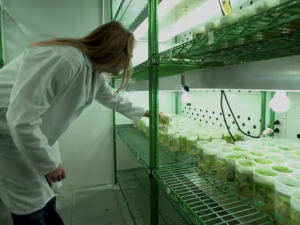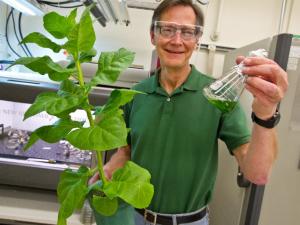

Research Bio
Krishna Niyogi's long-term research goals are to understand how photosynthetic energy conversion works, how it is regulated, and how it might be improved to help meet the world’s needs for food, fuel, and carbon sequestration to fight climate change. Current lab members use a wide array of experimental organisms and interdisciplinary approaches to (1) investigate fundamental questions about the regulation of photosynthesis, (2) elucidate molecular mechanisms underlying the operation of the oceanic biological carbon pump, and (3) apply this fundamental knowledge to increase photosynthetic efficiency and carbon sequestration by plants and algae.
Research Expertise and Interest
genetics, plant and microbial biology, algae, photosynthesis, CRISPR-Cas9 genome editing, carbon sequestration
In the News
In 10 years, CRISPR Transformed Medicine. Can It Now Help Us Deal With Climate Change?
A way to grow plants with less water
Fill 'er up with tobacco? Berkeley Lab-led team explores new path to biofuels
Next week's ARPA-E Summit will feature several Berkeley Lab-led projects, all aimed at dramatically improving how the U.S. produces and uses energy. Among them is an effort to produce transportation fuel from tobacco.
Krishna Niyogi named to Howard Hughes and Moore Foundation plant science program
Krishna Niyogi, professor of plant and microbial biology and an expert on photosynthesis, has been named an investigator with an ambitious plant science program sponsored by the Howard Hughes Medical Institute and the Gordon and Betty Moore Foundation. He is one of only 15 scientists nationwide to be chosen for this honor.




